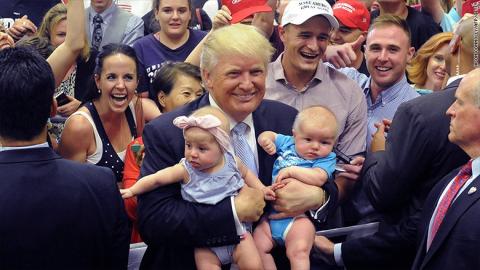https://twitter.com/POTUS/status/867078297057984512
In what many are hailing as a positive step toward helping American families balance their responsibilities of work and family, President Trump is proposing six weeks of paid time off to both mothers and fathers at the time of birth (or adoption) of a child.
“For the first time ever, by any administration of any party, we are proposing a nationwide paid parental leave program,” budget director Mick Mulvaney told reporters this week.
The leave would be administered and funded through state unemployment insurance.
One important change of this policy is that it is gender neutral, recognizing the important role fathers play in the early months of bonding with and caring for their children.
The gender neutrality also reduces the likelihood that employers might discriminate against women of childbearing years, since both men and women are equally eligible for the leave.
Experts have long stated the U.S. needs a paid leave policy to allow families to take time off after the birth or adoption of a child. Currently, the only guaranteed time off that workers get is unpaid, through the Family and Medical Leave Act (FMLA).
Critics of the plan say it doesn't go far enough and six weeks isn't nearly long enough for new parents to recover from a birth. It also is not ideal to have six-week-old babies in child care. The other question is, will all states participate since not all unemployment insurance systems can adequately handle the added costs?
Trump’s idea of routing paid family leave through the unemployment insurance infrastructure isn’t new. President Clinton proposed doing the same thing in his second term, an idea that came to be known as “baby UI.” His administration issued a regulation allowing states to expand their systems to allow parents to take leave for the arrival of a new baby if they chose to. While a number of states looked into it — 15 even introduced legislation — none ever actually implementing it. And the conditions for doing it were far better back then as the economy was really strong.
